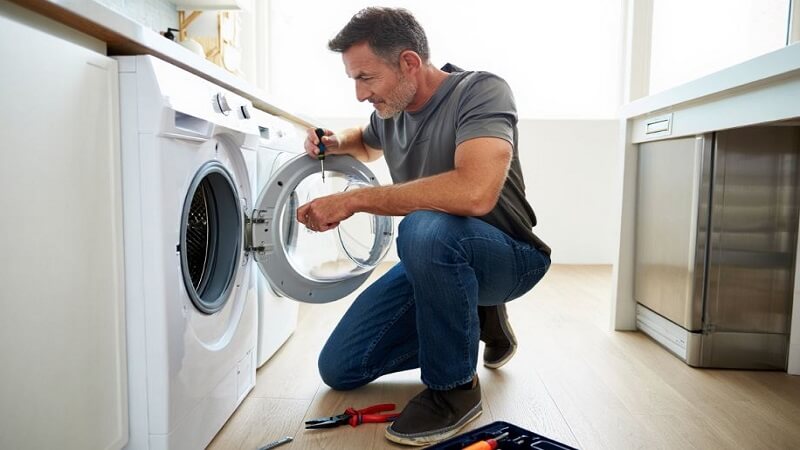In this article, you’ll discover a detailed overview of appliance repair, practical DIY techniques, and guidance on when to consult experts. We’ll compare common appliance issues across refrigerators, washers, dishwashers, ovens, and dryers, offering actionable advice for quick fixes at home. You’ll receive a checklist of essential tools and safety precautions to handle minor repairs effectively. Popular beliefs, like “DIY always saves money,” will be examined closely to highlight situations where professional intervention is crucial for safety and long-term reliability.
Overview of Appliance Repair & Home Appliance Repair Needs
Appliance repair involves diagnosing and fixing issues in household devices such as refrigerators, washing machines, dishwashers, ovens, and dryers. Home appliance repair needs typically arise from everyday usage, leading to predictable wear and tear. Performing simple DIY fixes can significantly reduce expenses and downtime. However, understanding the difference between minor repairs and serious faults requiring professional skills is crucial. This article will clarify these distinctions and provide practical insights to manage common appliance malfunctions effectively.
Common Faults in Household Appliances
Household appliances frequently encounter certain predictable issues. Kitchen devices like refrigerators, dishwashers, ovens, and laundry machines such as washers and dryers commonly face breakdowns from daily use. Addressing these promptly at home can save money, though it’s essential to recognize which faults you can safely handle yourself and when to seek professional help.
Refrigerator Repair
- Cooling Failures: Check thermostat settings, coils for dust, and power supply.
- Noisy Compressors: Verify compressor mounts and clean debris from fans.
- Gasket Leaks: Inspect and replace door seals to maintain proper temperature.
Washing Machine Repair
- Not Draining: Examine drain hoses and pumps for blockages or damage.
- Not Spinning: Test the lid switch and belt for proper functionality.
- Water Leaks: Look for loose hoses and damaged seals around the machine.
Dishwasher Repair
- Startup Failures: Check door latches, switches, and circuit breakers.
- Drainage Blockages: Clean filters, hoses, and inspect the drain pump.
- Door-Seal Issues: Replace damaged or worn gaskets to prevent leaks.
Oven & Stove Repair
- Heating-Element Faults: Inspect elements visually; replace if cracked or burned.
- Igniter Malfunctions: Verify igniter glow; replace if faulty or weak.
- Uneven Cooking: Ensure racks are level and heating elements function uniformly.
Dryer Repair
- Heating Loss: Check and replace faulty heating elements or thermostats.
- Belt Failures: Inspect belts for wear or breakage; replace promptly.
- Lint-Vent Restrictions: Regularly clean vents and lint traps to maintain airflow.
DIY Steps for Effective Home Appliance Repair
Follow these essential DIY appliance repair steps for minor fixes:
- Gather Essential Tools: Screwdrivers, multimeter, wrench, gloves.
- Safety First: Always unplug appliances before repair; use appropriate PPE.
- Inspect for Obvious Issues: Loose wires, damaged hoses, or worn belts.
- Test Components with a Multimeter: Check electrical continuity for components like switches and heating elements.
- Replace Seals and Gaskets: Remove old seals carefully; clean thoroughly before installing new ones.
- Replace Belts and Simple Parts: Follow appliance-specific guidelines; ensure proper tension and alignment.
- Reassemble Carefully: Reconnect components securely, avoiding over-tightening screws.
When to Call Repair Professionals & Ensure Safety
Certain appliance issues demand professional expertise due to safety and complexity. Gas appliances, electrical control board faults, or active warranty-related repairs should always involve licensed technicians. Professionals have specialized training and tools to handle hazardous situations safely, ensuring repairs meet safety standards and preserve appliance integrity.
Conclusion & Next Steps for Appliance Repair
Balancing DIY solutions with professional repair services helps maintain appliance safety and efficiency. Assess the complexity of your appliance issue accurately and act accordingly.
At Superior Appliances Repair, we encourage informed decisions about appliance care. Remember, appliance repairs and installations should always be carried out by licensed and professional technicians to guarantee safety, effectiveness, and compliance with local standards. The content provided here is for informational and educational purposes, empowering you to identify minor issues confidently and understand when professional support is necessary.

